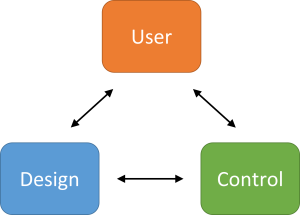
We study robot design and control for user-centered (e.g., human) applications. The interplay of these elements is at the core of our research. How to develop wearable and intelligent machines for users and how to use wearable robots to understand behaviors and movements are some of the questions we ask in our research.
Though ever-evolving, our current research topics span the following domains:
Assistive Technology
- Develop lightweight, portable, and wearable systems to assist functional and physical movements.
- Detect user intent and predict movements through physiological and movement measurement.
- Translate assistive robots from laboratory setting to real-world applications.
Rehabilitation
- Evaluate motor learning/re-training paradigms using wearable robots through hypothesis-driven studies for individuals with impairments.
- Develop wearable robots for physical rehabilitation research using animal models.
Sensorimotor and Biomechanics
- Study sensorimotor of human and animals exposed to force fields and sensory stimulus.
- Develop computer models to complement observational studies to understand biomechanics, predict movement, create valuable datasets, and design control algorithms for wearable robots.
Physical User-Robot Interaction
- Design mechanical hardware to achieve affordable sensing, simpler control algorithms, and better interaction, including using elastic elements and mechanical breaks.
- Develop algorithms to optimize physical interaction between human/animals and wearable robots.
